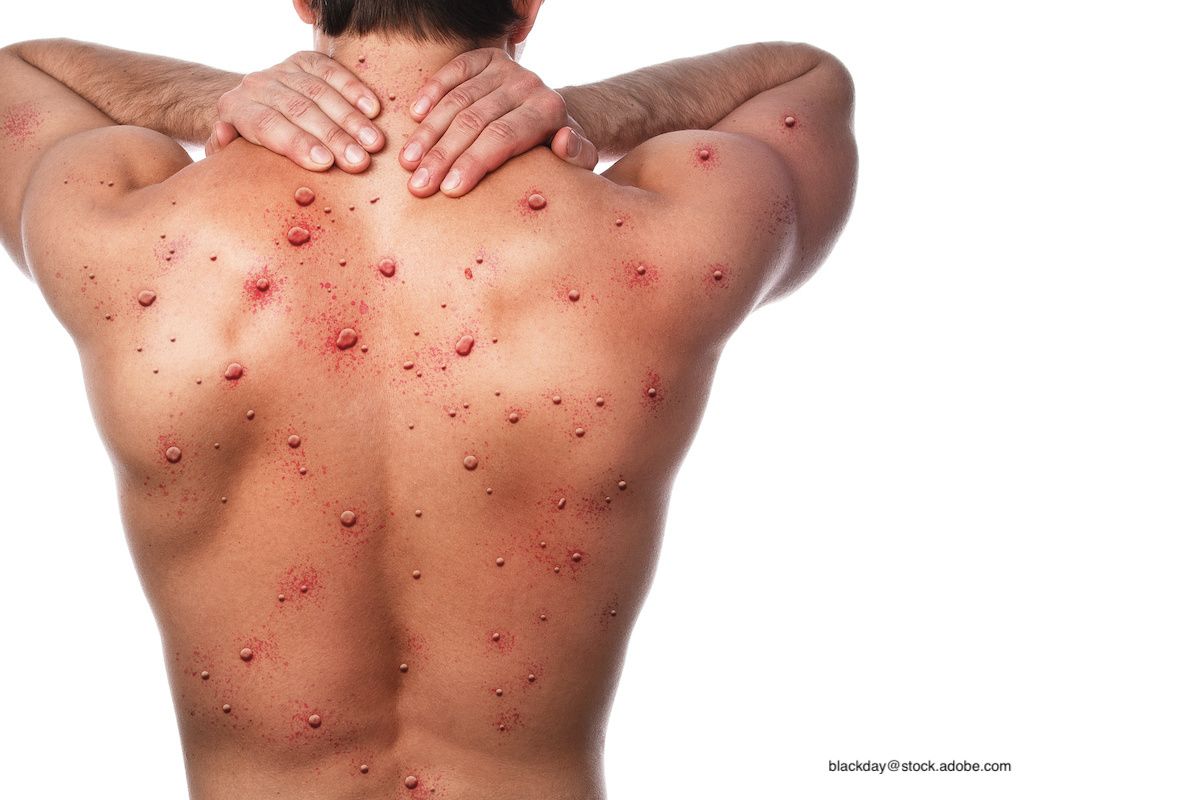
As the World Health Organization (WHO) prepares to meet, the World Health Network has released a press release describing the current monkeypox outbreak a pandemic and urging “immediate and effective action” from country and global public health authorities.1,2
As of June 22, were 3308 confirmed cases of monkeypox in 42 countries.3
“There is no justification to wait for the monkeypox pandemic to grow further,” said World Health Network cofounder Yaneer Bar-Yam, PhD, president of New England Complex System Institute, in a press release.1 “By taking immediate action, we can control the outbreak with the least effort, and prevent consequences from becoming worse.”
“The actions needed now only require clear public communication about symptoms, widely available testing, and contact tracing with very few quarantines. Any delay only makes the effort harder and the consequences more severe,” Bar-Yam added.
The WHN announcement on June 22 came the day before a scheduled WHO meeting to determine a monkeypox outbreak designation. Although the organization began using the term “pandemic” to describe the COVID-19 outbreak in March 2020, the organization’s highest level of alert is typically a “public health emergency of international concern.”4
What Is Monkeypox?
Monkeypox is a rare viral illness resulting from infection with the monkeypox virus, part of the same virus family as smallpox.4 According to the CDC, symptoms are similar to smallpox but typically milder and the disease is “rarely fatal.” Symptoms may include fever, headache, muscle and back aches, swollen lymph nodes, chills, exhaustion, and a rash that looks like pimples or blisters on the face, mouth, hands, feet, chest, or genitals.5
Monkeypox is spread person-to-person through direct contact with an infectious rash or bodily fluids; respiratory secretions during “prolonged face-to-face contact” or intimate physical contact; or touching items, such as clothing, that were previously in contact with an infectious rash or bodily fluids.6
On May 25, the WHO released public health advice for gay, bisexual, and other men who have sex with men (MSM)7; while monkeypox is not limited to this community, a majority of early cases were identified within the community.2,7 The advice also noted that transgender and gender diverse individuals “may also be more vulnerable in the context of the current outbreak.”7
Although there are no specific vaccines for monkeypox, 2 smallpox vaccines—Jynneos and ACAM2000—can be administered as pre-exposure prophylaxis against the disease.8 Jynneos is a non-replicating live virus administered via 2 subcutaneous injections 4 weeks apart. ACAM2000 is a live Vaccinia virus inoculated via pricking the skin surface.8
No treatments specific to monkeypox are currently available. If infected, patients who are more likely to become severely ill—such as those who are immunocompromised—may able to receive antiviral medications like tecovirimat (Tpoxx).9
Global Response
Scientists across the globe have criticized the WHO response—or lack thereof—including leading scientists in Africa, who point out that monkeypox has been a regional crisis for years.
“When a disease affects developing countries, it is (apparently) not an emergency,” said Emmanuel Nakoune, acting director of the Institut Pasteur in Bangui, Central African Republic. “It only becomes an emergency when developed countries are affected.” Nakoune is currently running a trial of a treatment for monkeypox.4
According to Ahmed Ogwell Ouma, acting director of the Africa Centres for Disease Control and Prevention, monkeypox cases and associated deaths across the continent have already reached “emergency levels.”4
While many experts agree that the current monkeypox outbreak meets WHO criteria to be defined as an emergency, the agency is, per reports “in a precarious position after COVID[-19].”4 Many critics of the WHO response believe that a pandemic declaration—rather than an emergency declaration—in January 2020 may have led to governments taking sooner action.
“The WHO needs to urgently declare its own Public Health Emergency of International Concern (PHEIC),” said Eric Feigl-Ding, PhD, an epidemiologist, health economist, and WHN cofounder. “The lessons of not declaring a PHEIC immediately in early January 2020 should be remembered as a history lesson of what acting late on an epidemic can mean for the world.”1
References
- The World Health Network declares monkeypox a pandemic — press release. News release. World Health Network. June 22, 2022. Accessed June 23, 2022. https://www.worldhealthnetwork.global/monkeypoxpressrelease
- Declaration of monkeypox a global pandemic. World Health Network. Published June 22, 2022. Accessed June 23, 2022. https://www.worldhealthnetwork.global/monkeypoxdeclaration
- 2022 global map & case count. CDC. Updated June 22, 2022. Accessed June 23, 2022. https://www.cdc.gov/poxvirus/monkeypox/response/2022/world-map.html
- Rigby J. WHO eyes decision on monkeypox ‘emergency’, Africa says it’s long overdue. Reuters. Published June 23, 2022. Updated June 23, 2022. Accessed June 23, 2022. https://www.reuters.com/world/africa/monkeypox-emergency-decision-due-who-sparks-african-criticism-2022-06-23/
- Signs and symptoms. CDC. Reviewed June 17, 2022. Accessed June 23, 2022. https://www.cdc.gov/poxvirus/monkeypox/symptoms.html
- How it spreads. CDC. Reviewed June 17, 2022. Accessed June 23, 2022. https://www.cdc.gov/poxvirus/monkeypox/transmission.html
- Monkeypox: public health advice for gay, bisexual, and other men who have sex with men. World Health Organization. Published May 25, 2022. Accessed June 23, 2022. https://www.who.int/news/item/25-05-2022-monkeypox–public-health-advice-for-gay–bisexual-and-other-men-who-have-sex-with-men
- Vaccine guidance. CDC. Reviewed June 2, 2022. Accessed June 23, 2022. https://www.cdc.gov/poxvirus/monkeypox/clinicians/smallpox-vaccine.html
- Treatment. CDC. Reviewed June 17, 2022. Accessed June 23, 2022. https://www.cdc.gov/poxvirus/monkeypox/treatment.html







